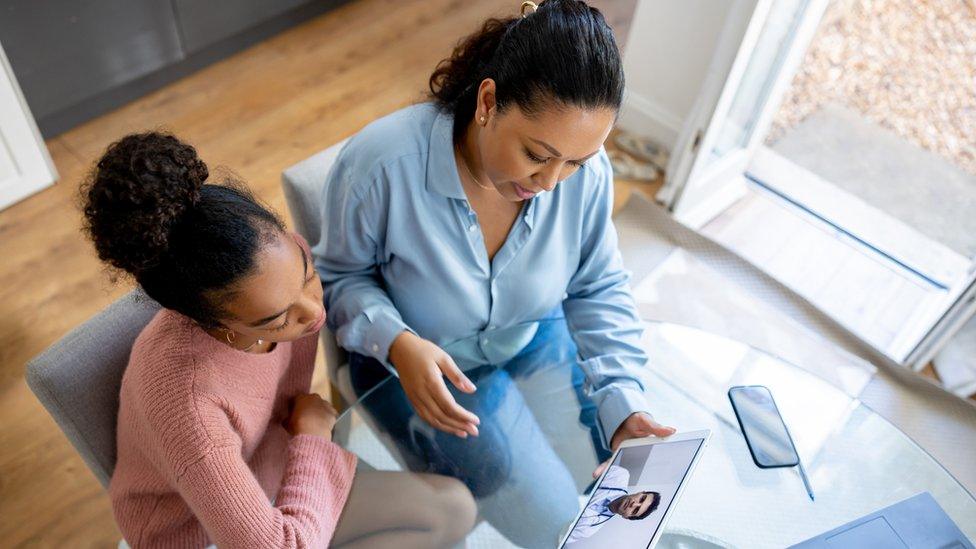Hertfordshire NHS trust says virtual wards prevent admissions
- Published
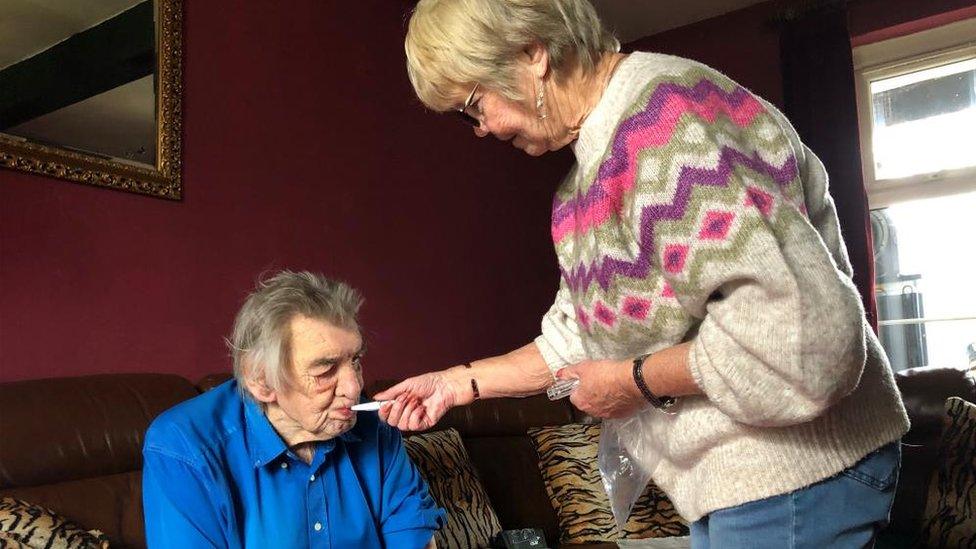
Brian and Marion Smith have been using the service after Mr Smith had a cardiac arrest last year
A hospital-at-home service was "making a big difference" for both patients and the NHS, a trust said.
Hertfordshire Community NHS Trust said it was working with the "virtual ward" company Doccla to "provide hospital level care in patients' own homes".
Patients are provided with technology so they can be monitored at home.
The trust's medical director Dr Elizabeth Kendrick said the service prevented hospital admissions and enabled earlier discharge.
Doccla provides patients with equipment to record their observations, such as blood pressure, which could then be sent back to a health professional.
Patients are also asked to fill in questionnaires and if a "red flag" was raised, by either the questionnaire response or an observation reading, a call could be made to the patient.
'Patients do better at home'
Dr Kendrick said the service was "really great" as "patients do better at home".
"The patient feedback is amazing," she said.
"People want to be in their own homes where they're surrounded by their own things, eat their own food and sleep in their own beds."
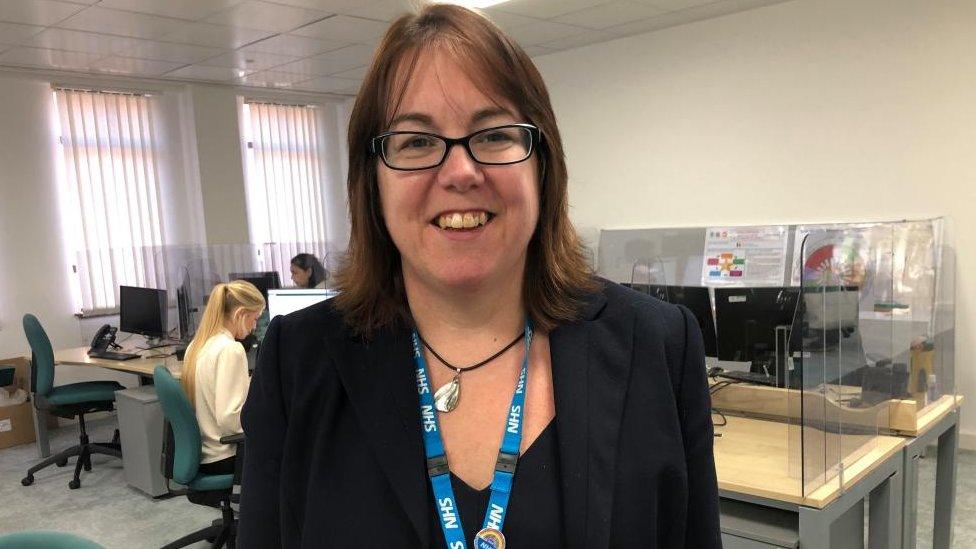
Elizabeth Kendrick said she hoped the service would have 200 patients by the end of 2023
The service also has six community teams who can go out to patients' homes if a "red flag" is raised on the system.
Dr Kendrick said the service currently had 90 patients "that would otherwise be in hospital".
"Hospital is the right place for some people, but for others they can de-condition rapidly," she said.
"It's also obviously cheaper to look after someone in their own home than in hospital, and we're also not having to deploy a nurse to check somebody's observations."
'Easy to use'
In November, Brian Smith was admitted to the Lister Hospital in Stevenage after going into cardiac arrest at home.
After two weeks in hospital, the 80-year-old said he was desperate to return home.
He and his wife, Marion Smith, were lent equipment to provide him with oxygen at home, and a tablet computer to record his observations.
Mrs Smith said: "Every day they were phoning me and I just never felt alone; I was really supported.
"When he was in hospital it was scary as I didn't know what was going on.
"While he was in hospital it was playing with his mind a bit and he was hallucinating; he would've gone crazy in there; he doesn't like hospitals.
"When he came home he was back to himself."
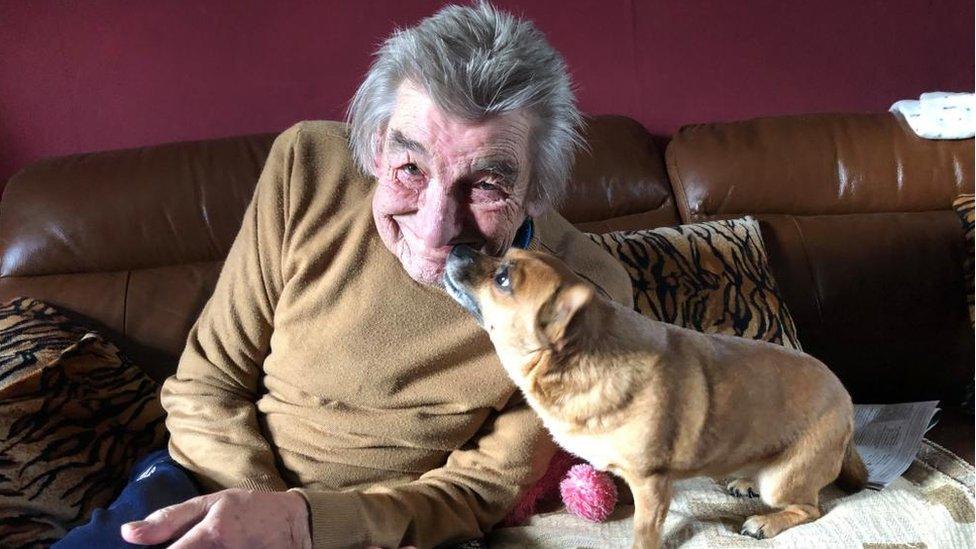
Brian Smith said one of the perks of the service was being able to be at home with his dog
Mrs Smith, who is aged 78, said taking her husband's observations and sending them back to the team was easy and "anybody could do it".
"The hardest part was going up and down the stairs to do them," she said.
"But I'm a lot fitter now."
'Some patients don't need to be in hospital'
Martin Ratz, the founder of Doccla, said for every £1 spent on the service, the NHS saved £3.
He said he started the company after "unexpectedly" suffering a heart attack at a young age.
"One of the insights was that in hospital I was being constantly monitored, but when I left hospital there was no monitoring whatsoever," he said.
"But using modern technology we can enable monitoring wherever you are."
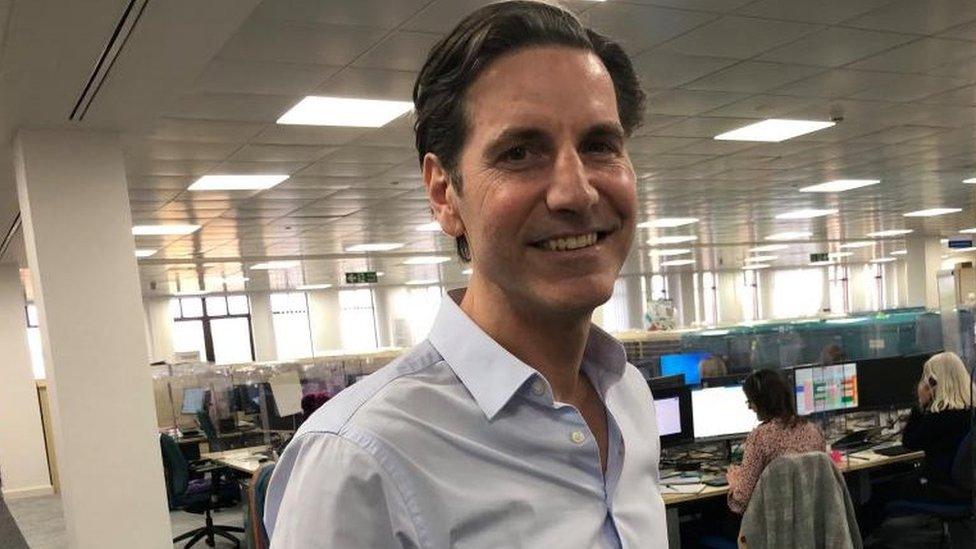
Doccla founder Martin Ratz said the system saved the NHS money
Mr Ratz acknowledged the service would not be suitable for everyone.
"This is for those patients that don't need to be in hospital and can be treated at home instead," he said
"We used recognised, certified technology and have specialists looking after patients."
Mr Ratz said he believed the system would set "a standard mode of care" for the next generation.

Find BBC News: East of England on Facebook, external, Instagram, external and Twitter, external. If you have a story suggestion please email eastofenglandnews@bbc.co.uk, external
- Published9 February 2023

- Published29 January 2023
